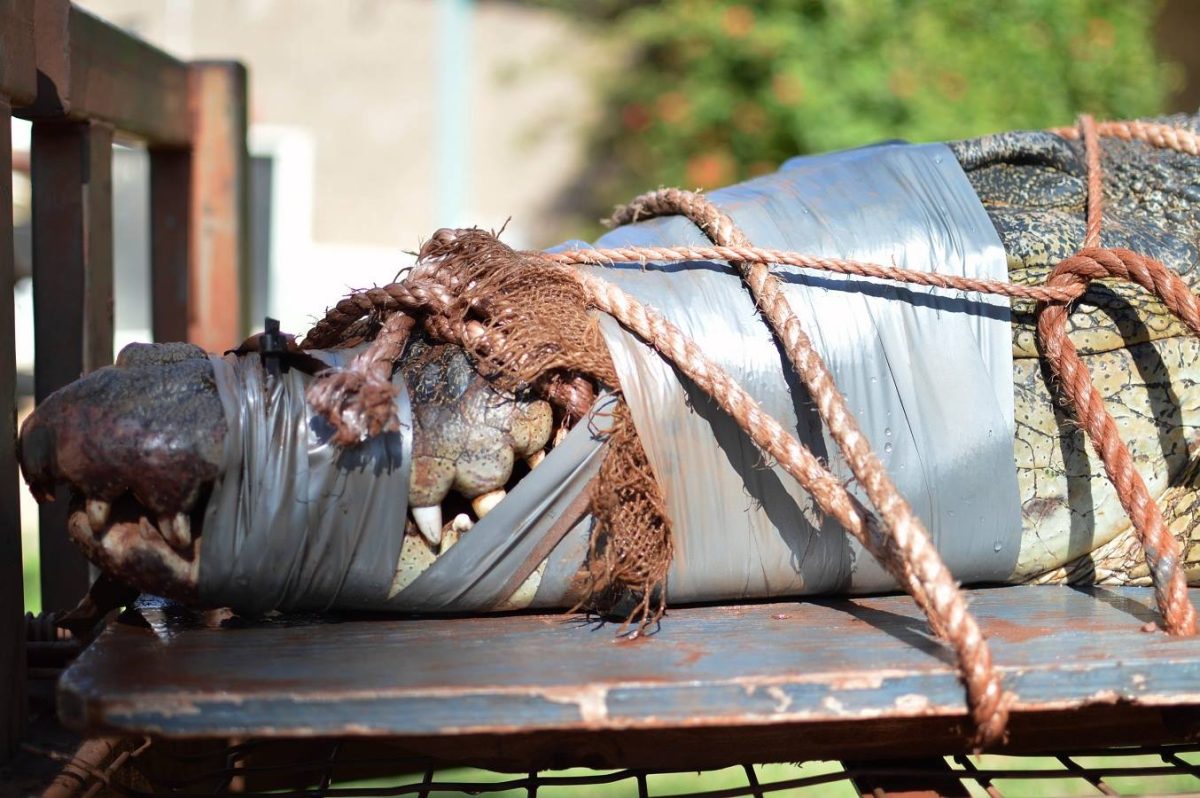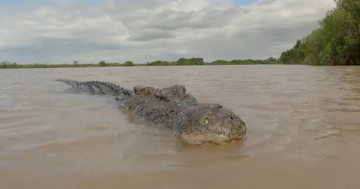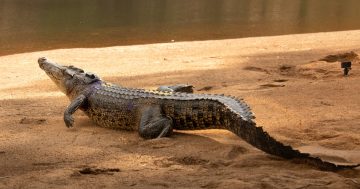
With the Queensland saltwater crocodile population having now recovered from widespread commercial hunting prior to the 1974 ban, is it time to discuss the potential benefits of reintroducing safaris through Cape York and the Gulf of Carpentaria? Photo: Lyndon Keane.
Last week’s tragic attack of a 16-year-old Saibai Island boy has reignited the discussion about the state’s growing saltwater crocodile population, and how to best manage the relationship between the prehistoric reptiles and people.
While the 3.5-metre animal suspected of attacking the teenager will be removed from the area in line with the Queensland government’s crocodile management plan, there is another divisive option I believe worthy of genuine consideration: reintroducing limited commercial hunting.
Before you reach terminal moral outrage and call for my head, hear me out.
A recent long-term study by the Department of Environment, Science and Innovation and CSIRO found there are an estimated 20-30,000 saltwater crocodiles living in Queensland waterways. About 40 per cent of the total non-hatchling population is found in the north-western part of Cape York.
Salties were decimated to near extinction before commercial hunting was banned in the state in 1974, but the study showed numbers have recovered to pre-protection levels, with our part of Queensland unsurprisingly boasting the densest population per square kilometre.
Clearly, we stuffed it up good and proper the first time, but there are valid economic and safety arguments for allowing hunting to be brought back, especially if it’s being managed by Traditional Owners and Indigenous-owned tourism businesses with appropriate legislative and environmental oversight.
Such a plan obviously wouldn’t work in parts of Cape York, the Torres Strait and Gulf of Carpentaria where the saltwater crocodile is embraced as a cultural totem, but other locations could certainly maximise the potential financial benefit of welcoming paying hunters to bag a trophy crocodile.
The plan isn’t a new one. Bob Katter has been calling for commercial hunting to be reintroduced for the best part of a decade now, and has generally been shot down in flames every time he rehashes the idea. You have to wonder whether it’s because people genuinely hate the idea, or because it’s the outspoken maverick MP suggesting it.
If hunting were reintroduced, there’s little doubt it could create significant income and employment opportunities for remote communities, including those crying out for economic point of difference to the Cape York staples of tourism and mining. When commercial crocodile safaris were mooted in the Northern Territory about 10 years ago, I spoke to an American tourist who had paid a fortune to fly to the Top End to hunt a trophy buffalo. Over a few beers, I mentioned some local Traditional Owners were investigating whether crocodile hunting could be viable, and quizzed him on how much he’d be willing to pay to participate. I nearly dropped my schooner when he told me he believed cashed-up international hunters, including himself, would be prepared to part with up to $50,000 – that’s US dollars, thank you very much – to add a saltwater crocodile to their trophy list.
The evidence shows our saltwater crocodile population has not only recovered, but is booming after commercial hunting was banned 50 years ago. It’s a statistic that doesn’t fit well with a sprawling human population, and one that means tragic encounters between the reptiles and us are going to become more commonplace.
Bringing back controlled commercial hunting may be a controversial way to manage the growing population of crocodiles in our backyard, but I think it’s at least worth bringing the idea to the table so the pros and cons can be objectively assessed.
The Cape York Weekly team sends it sincere condolences to the family and friends of the teenager, as well as the greater Saibai Island community.




